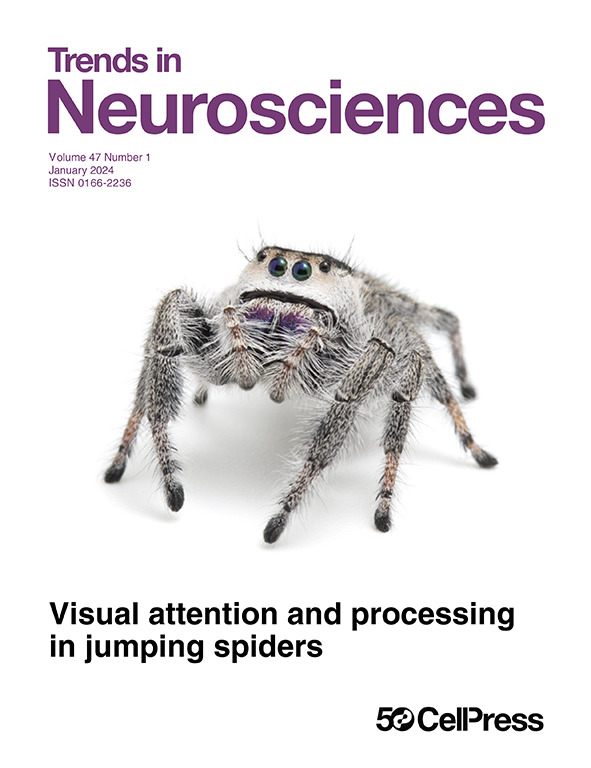What would it take to prove that a chronic infection is a causal agent in Alzheimer's disease?
IF 15.1
1区 医学
Q1 NEUROSCIENCES
引用次数: 0
Abstract
Accumulating evidence over several years suggests that microbial infections (e.g., bacteria, viruses, fungi) may play a role in the etiology of Alzheimer's disease (AD). In this review, we discuss the reported associations between a variety of microbes and the development of AD, as well as potential causal relationships between infections and AD risk. Having evaluated the current state of knowledge, we make specific recommendations for what it would take to present definitive evidence that chronic infections play a causal role in AD pathogenesis.
怎样才能证明慢性感染是阿尔茨海默病的诱因呢?
多年来积累的证据表明,微生物感染(如细菌、病毒、真菌)可能在阿尔茨海默病(AD)的病因学中发挥作用。在这篇综述中,我们讨论了各种微生物与AD发展之间的关联,以及感染与AD风险之间的潜在因果关系。在评估了目前的知识状态后,我们提出了具体的建议,以提供确凿的证据,证明慢性感染在阿尔茨海默病的发病机制中起因果作用。
本文章由计算机程序翻译,如有差异,请以英文原文为准。
求助全文
约1分钟内获得全文
求助全文
来源期刊

Trends in Neurosciences
医学-神经科学
CiteScore
26.50
自引率
1.30%
发文量
123
审稿时长
6-12 weeks
期刊介绍:
For over four decades, Trends in Neurosciences (TINS) has been a prominent source of inspiring reviews and commentaries across all disciplines of neuroscience. TINS is a monthly, peer-reviewed journal, and its articles are curated by the Editor and authored by leading researchers in their respective fields. The journal communicates exciting advances in brain research, serves as a voice for the global neuroscience community, and highlights the contribution of neuroscientific research to medicine and society.
 求助内容:
求助内容: 应助结果提醒方式:
应助结果提醒方式:


